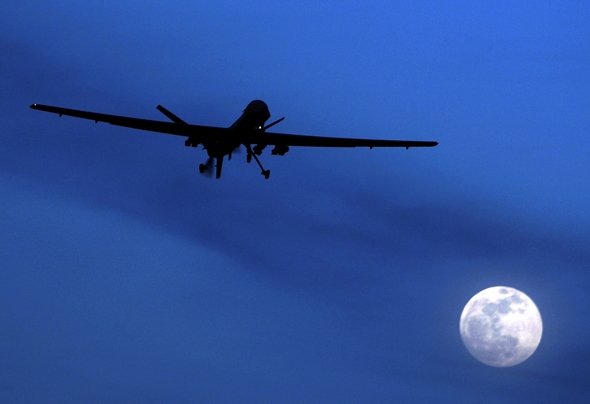
From Craig Whitlock, the Washington Post: The Obama administration is considering a request from Turkey to base a fleet of Predator drones on Turkish soil for counterterrorism operations in northern Iraq, a decision that could strengthen a diplomatic alliance but drag the United States deeper into a regional conflict.
The U.S. military has flown the unarmed Predators from Iraqi bases since 2007 and shared the planes’ surveillance video with Turkey as part of a secretive joint crackdown against fighters from the Kurdistan Workers’ Party, or PKK. Unless a new home for the Predators is found, however, the counterterrorism partnership could cease by Dec. 31, when all U.S. forces are scheduled to withdraw from Iraq.
The Obama administration has not yet made a decision on the Turkish request, according to senior U.S. military officials.
Previously undisclosed diplomatic cables show Turkey has become highly dependent on the Predators, U-2 spy aircraft and other U.S. intelligence sources in its conflict with the PKK. The Kurdish group, which is fighting to create an autonomous enclave in Turkey, has launched cross-border attacks from its hideouts in northern Iraq for years. Turkey has responded with airstrikes and artillery attacks but has also sent ground troops into Iraq, further destabilizing an already volatile area.
Turkey’s request to host the Predators on its territory is an unexamined consequence of the U.S. withdrawal from Iraq, which some countries fear could leave a power vacuum in an unstable region. It also underscores how U.S. unmanned aircraft have swiftly become the leading tactical weapon against terrorist groups around the world, as well as a favored instrument of foreign policy.
Besides deploying armed drones in Afghanistan, Iraq and Pakistan, the United States is expanding drone missions over Yemen and Somalia. It has sent surveillance drones into Mexico for counternarcotics operations and supplied small surveillance drones to the Colombian military for counterterrorism missions. . . .
Turkey has tried to buy its own armed drones from the United States, seeking to purchase MQ-9 Reapers, a larger and more modern version of the Predator. The Bush and Obama administrations have supported the request, but Congress has withheld approval so far. Some legislators are reluctant to sell the aircraft to Turkey given Ankara’s deteriorating relations with Israel, a close U.S. ally.
Selling armed drones to Turkey poses other risks. PKK leaders have made vague public threats against the United States, warning them not to supply Turkey with “special assassination aircraft." (photo: Kirsty Wigglesworth/AP)
Image: ap%209%2012%2011%20Predator.jpg
